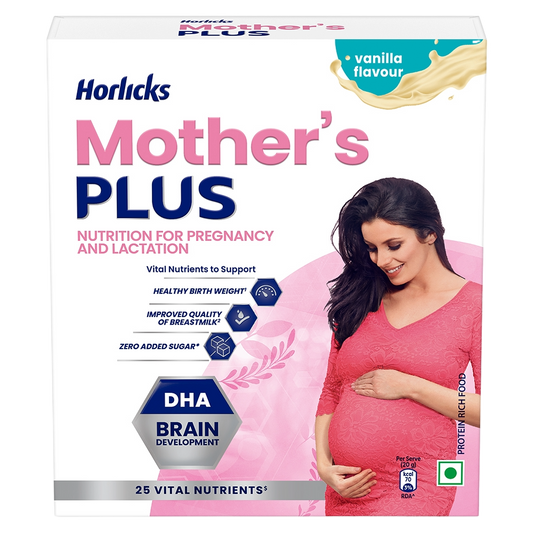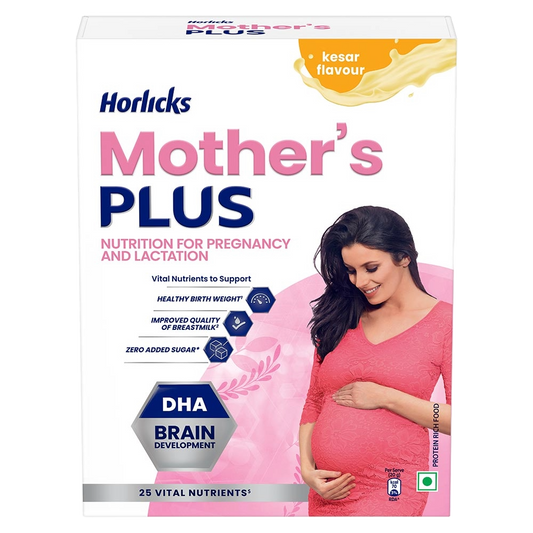Pregnancy presents a new stage in your life - one that requires optimal nutrition and adequate nourishment. The best source for this nourishment lies in your diet and the supplements you consume. Some of the essential nutrients and vitamins are only available in meat and fish. As a result, you may wonder whether a vegetarian diet would provide your baby with proper nutrition. Don’t worry! There are plenty of nutritious options for vegetarian moms.
Pack In The Protein
Most vegetarian mothers-to-be are concerned about inadequate protein intake. In the first trimester of pregnancy, the Recommended Dietary Intake (RDI) for protein for pregnant women is 46 g per day (0.75 g/kg/day). In the second and third trimesters, this becomes 60 g per day (1.00 g/kg/day).
There is a slight variation in the guidelines by the World Health Organization (WHO) for pregnant mothers. It recommends 597 g (range 497g to 696g) protein gain for an average weight gain of 12kg (range 12-14kg) for a pregnant woman1.
A meaningful way to sufficiently increase protein intake is by incorporating pulses and legumes into your diet. A healthy mix of cereals, millets, and pulses will go a long way in providing a majority of the amino acids while perfectly complementing one another to offer protein of the highest quality.
Other Essential Nutrients
While protein is one of the most vital nutrients required during pregnancy, other nutrients are important too. According to the ICMR guidelines, pregnant women should consume foods that are rich in folate, iron, calcium, iodine, choline, DHA as well as Vitamins A, B12, C, and other essential fatty acids. These go a long way in improving your health as well as the growth of your baby.
To incorporate these essential nutrients and vitamins into your diet, health experts recommend the following sources
- Fresh fruits, vegetables, nuts, and legumes offer a healthy mix of vitamins and minerals that are essential for your growing baby
- Dairy products are rich sources of calcium and Vitamin D; fruit-based desserts pack in calcium and Vitamin C
- Kidney beans, flax seeds contain an optimal amount of Zinc
- Cereals, bread, pasta, pea, etc. offer a healthy mix of iron
- Vegetables such as avocado, okra, broccoli are rich in folic acid
- Nuts, beans, and dairy products contain a bountiful amount of iron
- Yogurt, chocolates, dried fruits are rich in magnesium
- Mustard, fenugreek, vegetables, fruits, pulses, wheat, pearl millet are good sources of alpha-linolenic acid (ALA)
- Whole grains, vegetables and fruits, and milk provide an efficient intake of choline
Along with those food-based sources, you should also incorporate a healthy mix of supplements to boost your daily intake of nutrients and vitamins. A good example is the Horlicks Mother’s Plus - it is a nutritious supplement that contains a healthy serving of Choline and DHA. That composition plays an integral role in the brain development of the baby.
Charting Out Your Daily Requirements
The best way to track these essential nutrients and vitamins is by maintaining and following a diet chart. Look into developing a list of requirements and recommendations beforehand and adopting them into your diet as you go.
Pay close attention to what you eat every day and ensure that it is in line with these requirements. Be mindful of the recommended sources and look into building variety in your daily diet. Remember that you have a vast range of choices and your meals do not have to be the same every day. If you want a change from rice and rotis, try a brown rice pulao or a quinoa salad, or even oats khichdi.
You need not depend on spinach alone for your daily dose of leafy greens. Try cabbage, colocasia leaves, mustard greens, and fenugreek leaves as well8. Non-dairy milk, like almond milk, is a great option too. Also, make sure that you ask your doctor about the dietary supplements available in the market and whether you need any.
As long as you meet your daily requirement of nutrients, your diet will remain adequate, and you can be sure that you and your baby will remain healthy as well.
Most importantly, understand the natural benefits that a vegetarian diet brings
Understand the characteristics of a vegetarian diet in detail. Just as you pay close attention to the shortfalls, be careful to look into the benefits as well. You may be surprised by just how nutritious and wholesome a vegetarian diet may be.
After all, a vegetarian diet makes for a great source of fibre that goes a long way in improving digestion. It also helps you avoid several health risks that may come up during pregnancy. These include obesity, constipation, hypertension, type 2 diabetes, and heart disease.
So, remember, being vegetarian can be a boon during pregnancy; the trick is to eat right. Ensure your daily diet in pregnancy includes foods that give you and your baby the right nutrients.
The author is Neha Chandna, who is a practicing dietitian for the last eight years. The views, opinions, and recommendations expressed in this article are solely those of the author and intended as an educational aid. Please consult your doctor for professional advice concerning specific health/medical matters.








